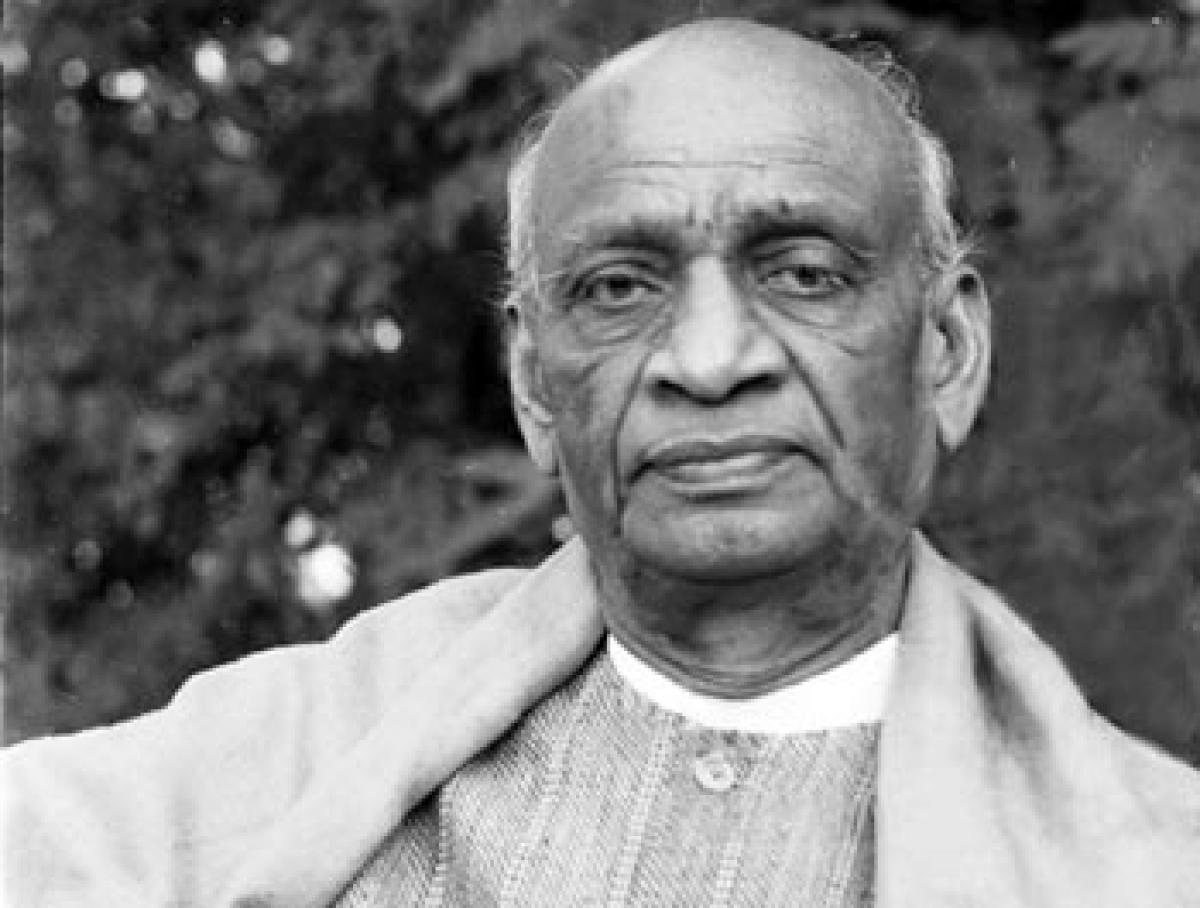Live
- VP Dhankhar urges corporates to invest in education
- Punjab DGP, MHA official request farmer leader Dallewal to end 20-day fast
- Stage Collapse During Swearing-In Ceremony of KUDA chairman in Kakinada
- Govt unveils ‘Jalvahak’ to boost inland waterways
- List of criminals: Delhi BJP chief on AAP panel of 38 candidates
- PSBs in India clock record Rs 1.41 lakh crore in net profit in FY24
- Telangana Government Announces Key Development Plans: Bhatti Vikramarka
- Crackdown on illegal poppy farming in Manipur: Assam Rifles destroyed 6,228 acres in 5 years
- South Korea's ruling party leader cancels press conference amid calls for resignation
- AIADMK's big meet discusses 2026 polls, prospective alliances
Just In

Patel\'s personality rather than an institutionalised response kept Gujarat politics clean. It depended in Gujarat on people like Gandhi and Patel — incorruptible, hard working, and with an established pattern of cracking down on corruption.
 Patel's personality rather than an institutionalised response kept Gujarat politics clean. It depended in Gujarat on people like Gandhi and Patel — incorruptible, hard working, and with an established pattern of cracking down on corruption. When critics today complain of corruption in politics and nostalgically recall the Sardar, it is these qualities of person and leadership that they usually most invoke
Patel's personality rather than an institutionalised response kept Gujarat politics clean. It depended in Gujarat on people like Gandhi and Patel — incorruptible, hard working, and with an established pattern of cracking down on corruption. When critics today complain of corruption in politics and nostalgically recall the Sardar, it is these qualities of person and leadership that they usually most invoke
Sardar Vallabhbhai Patel's success in creating a Congress machine first in Gujarat and later throughout India raised new kinds of problems. Two of them arising most prominently continue to mark the Indian politics to the present.
Having succeeded in building a party machine capable to taking power, Patel was accused of having then closed the machine to newcomers and retaining power in the hands of those already in control.
The expansion of the Congress brought with it opportunists who sought the levers of wealth and power which the party began to control. Patel attempted to block this transformation, but with only limited success.
As the Congress developed more power and moved into the seats of government itself in the Bombay Legislative Assembly, 1937-39, Patel moved to inhibit the upward flow of information and political demands.
As popular discontent began to focus not only on the British, but on the Congress government as well, Patel felt it had to be controlled, though not completely stopped. Patel subordinated village Congress units to the control of taluka units, taluka units to district, district to state party officials, and all of them were subordinate to him as President of the GPCC.
Patel allegedly gerrymandered constituencies in internal Congress elections to insure the dominance of likeminded people. Some socialist members of the Congress protested against this to the AIC C leadership." They charged that "The Congress is gradually reduced to a body detached from the masses.
The responsibility for such a state of affairs lies on the shoulders of those who today control the destiny of the GPCC." But other Congressmen found the increased control from the top necessary to keep the party unified and powerful, especially as Congress was now the government rather than the opposition.
Gandhi concurred in this belief, writing: “Let us understand the functions of the Congress. For internal, growth and administration, it is as good a democratic organisation as any to be found in the world. But this democratic organisation has been brought into being to fight the greatest imperialist power living.
For this external work, therefore, it has to be likened to an army. As such it ceases to be democratic. The central authority possesses plenary powers enabling it to impose and enforce discipline of the various units working under it. Provincial organisations and provincial parliamentary boards are subject to the central authority.”
The question of the degree of openness of the party, however, was not so easily resolved. It would continue to arise especially after Independence. Finally, Vallabhbhai presided over the transformation of the Congress from an all-volunteer organisation to its first days as the occupants of the seats of power — first in the municipalities, and the government of various presidencies, including Bombay.
1937-39, and finally as the Government of India after 1947 — and also the first days of its acceptance of paid officials, beginning in the late 1920s. Both these developments stirred apprehension, but were considered necessary. Vallabhbhai's speeches' in public and conversation in private were directed at getting his workers to remain sensitive to the grassroots rather than turn in the direction of power and profits.
The problem of opportunism appeared throughout India as the steps toward Independence brought the Congress to power. Members sought seats in the capitals rather than places in the countryside as office-holding brought the possibilities of personal gain in contrast to the lonelier, unremunerative work among the masses.
By personal example, continuous hard work among his own lieutenants, consistent nagging, and occasional purges, Patel kept the Gujarat Congress rather free of the opportunism which plagued other provinces. Part of Patel's talent was very hard work and constant communication with his troops. Patel's personality rather than an institutionalised response kept Gujarat politics clean.
Much of this probity could not be transmitted to other provinces. It depended in Gujarat on people like Gandhi and Patel — incorruptible, hard working, and with an established pattern of cracking down on corruption. Both men, in addition, maintained life-long connections with the GPCC.
When critics today complain of corruption in politics and nostalgically recall the Sardar, it is these qualities of person and leadership that they usually most invoke.
By Howard Spodek

© 2024 Hyderabad Media House Limited/The Hans India. All rights reserved. Powered by hocalwire.com







